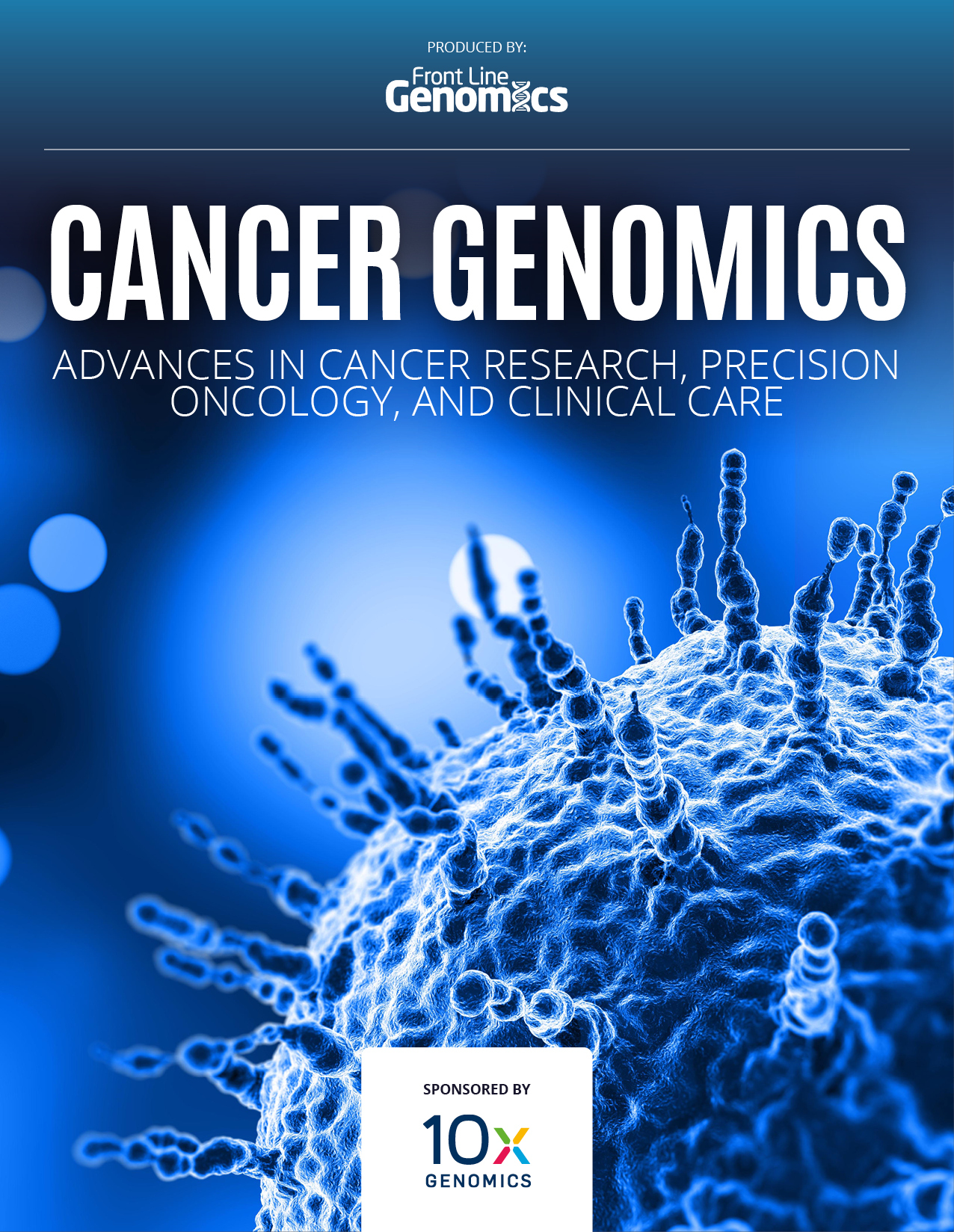
Cancer Genomics
Advances in cancer research, precision oncology and clinical care
Cancer research is constantly evolving, delivering new tools to better understand the genetic changes that drive cancer development. Thanks to the rapid evolution of genomics-based research and techniques, it can be hard to keep up with the major advancements that are changing oncological research and patient outcomes.
To address this issue, we are launching this year’s Cancer Genomics Intelligence Report, a free-to-download resource bringing you the latest research, techniques and insights from leading experts in the cancer genomics field.
This report covers the most impactful developments in cancer research across a wide range of topics. Containing 7 in-depth chapters exploring areas ranging from major liquid biopsy clinical trials to the future of artificial intelligence in cancer diagnosis, this report features the latest and most exciting findings this year had to offer. Report chapters include:
Chapter 1 - Fundamentals of Cancer Biology
Setting the foundation for future chapters, this chapter contains an overview of cancer development and brief explanations of key concepts, including oncogenesis, tumour development and metastasis.
Chapter 2 - Tools of the Trade: Sequencing Technology
Sequencing of patient genomes is a fundamental requirement for many cancer genomics techniques. This chapter explores the different DNA/RNA sequencing platforms available and the latest advancements in sequencing technology.
Chapter 3 - Liquid Biopsy: A New Era in Cancer Detection and Surveillance
Liquid biopsy techniques may have a major impact on early cancer diagnosis and surveillance. This chapter explores liquid biopsy and downstream machine learning methods, notable clinical trials, and the challenges associated with its clinical implementation.
Chapter 4 - Multi-Omics in Cancer Research
Cancer research is undergoing massive transformation, with multi-omics studies providing a more detailed picture of how cancer develops and thrives. This chapter introduces multi-omics in cancer research, discusses key cancer omics studies, and the challenges in this area.
Chapter 5 - Targeted Treatments: Current and Future Precision Oncology Therapies
Targeted cancer treatment is a critical area of cancer genomics that is set to revolutionise cancer care. This chapter presents updates on gene editing techniques that are making personalised immunotherapy possible, how tailored approaches are currently being used in healthcare, and what the future may hold for this exciting field.
Chapter 6 - Computational Oncology
This up-and-coming field covers the use of computational tools, artificial intelligence, and machine learning to inform cancer prognosis and treatment. This chapter will explore how computational oncology can deepen our understanding of cancer and improve patient outcomes.
Chapter 7 - Driving Progress Forward: The Big Challenges in Cancer Research
Using expert contributions and insights, the final chapter of the report will cover the biggest problems currently facing researchers in the field, and some possible solutions and future advancements which will drive cancer genomics research forward.
The creation of this report would not have been possible without our expert contributors, whose knowledge and insights have made this report an excellent resource for the cancer research community. We’d like to sincerely thank our contributors; we hope you find their insights valuable.
- Dr Sagi Abelson, Principal Investigator, Ontario Institute for Cancer Research and Assistant Professor, University of Toronto, Canada
- Dr Nathaniel Anderson, Postdoctoral Researcher, Wellcome Sanger Institute
- Dr Claire Bloomfield, Director for the Centre for Improving Data Collaboration, NHS
- Professor Brian Brown, Director of Icahn Genomics Institute, Mount Sinai School of Medicine and Vice Chair of the Department of Immunology and Immunotherapy, Mount Sinai School of Medicine
- Dr Fei Chen, Core Faculty Member, Broad Institute and Assistant Professor, Harvard University
- Dr Katherine Chiappinelli, Assistant Professor of Microbiology, Immunology, & Tropical Medicine, The George Washington University
- Dr Kimberly Gilmour, Director of Laboratory Medicine, Great Ormond Street Hospital
- Professor Trevor Graham, Professor of Genomics and Evolution and Director of the Centre for Evolution and Cancer, Institute of Cancer Research
- Dr Helen Hanson, Consultant in Clinical Genetics, Royal Devon University Healthcare NHS Foundation Trust and NIHR Senior Investigator Fellow, Exeter Biomedical Research Centre and University of Exeter
- Dr Alfredo Hidalgo-Miranda, Cancer Genomics Laboratory Lead, National Institute of Genomic Medicine, Mexico
- Dr Mariam Jamal-Hanjani, Professor of Cancer Genomics and Metastasis, UCL Cancer Institute and Honorary Consultant in Translational Lung Oncology, University College London Hospitals NHS Trust
- Nicolas Mathey-Andrews, MD PhD Candidate, Massachusetts Institute of Technology
- Emma McCargow, Programme Lead for Cancer, Genomics England
- Dr Christine Moussion, Senior Principal Scientist and Group Head of Cancer Immunotherapy Discovery, Genentech
- Professor Olufunmilayo Olopade, Director of the Center for Clinical Cancer Genetics and Global Health, University of Chicago
- Professor David Wedge, Professor of Cancer Genomics and Data Science, University of Manchester
- Dr John Zuris, Director of Editing Technology, Editas Medicine
Download Report
ABOUT US CONTACT ADVERTISE PRIVACY POLICY
Front Line Genomics Limited is registered in England and Wales. Company Number 10421716, VAT: GB 297 742 548.
Registered Office: Ground Floor, Cromwell House, 15 Andover Road, Winchester, Hampshire, SO23 7BT
